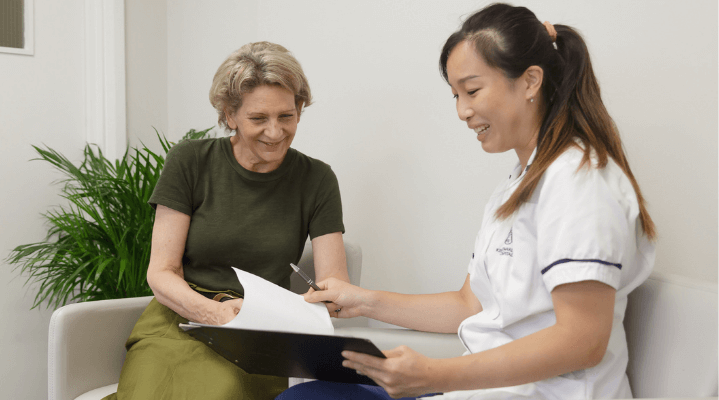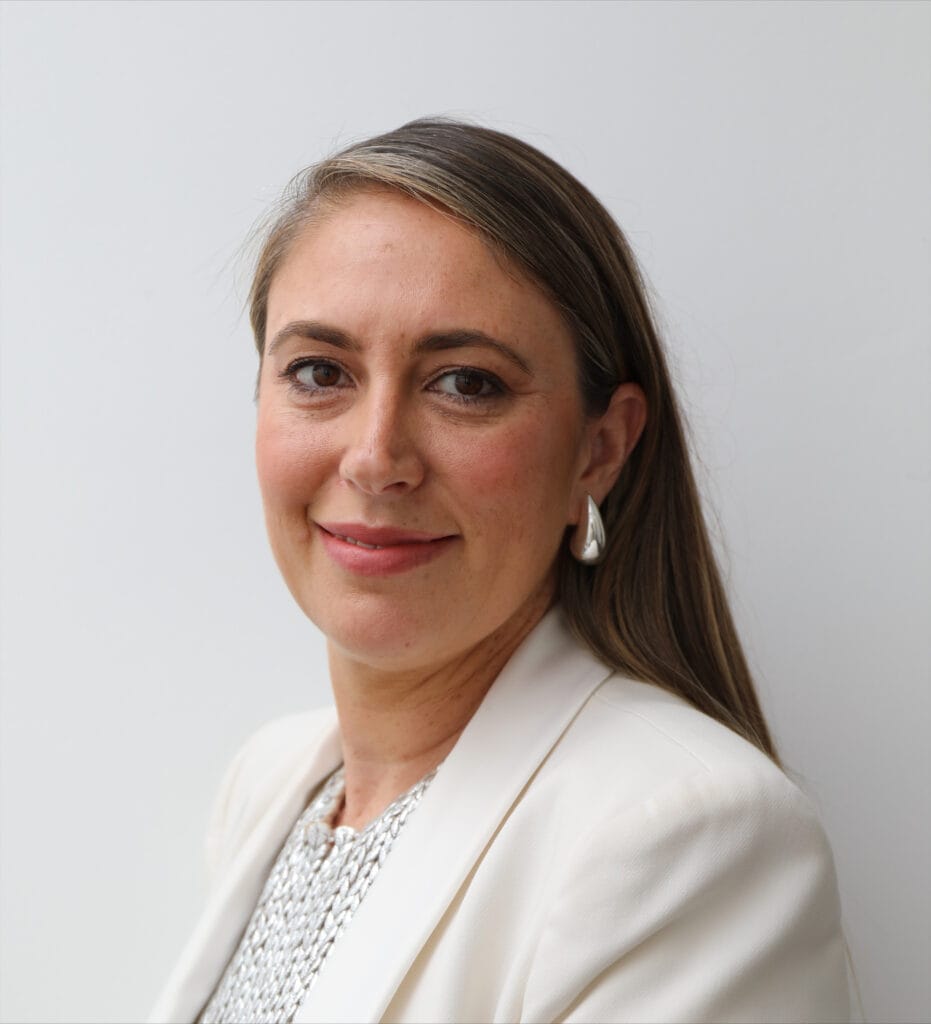Health Hub
Triple assessment: the gold standard of breast screening

Breast cancer is one of the most prevalent cancers among women – with 1 in 8 British women being diagnosed at some point in their life. The vast majority of women who get breast cancer are post-menopausal and in their 50s, but it can affect women of any age.
An early diagnosis is crucial, as this significantly increases the chance of recovery. But what signs should you look out for when checking your breasts? And if you think you have symptoms, what should you do?
Triple assessment breast screening is perhaps the best option: it’s widely considered as the ‘gold standard’ of treatments, as it combines three diagnostic tests into one – making for a more accurate diagnosis.
Mr Petros Charalampoudis is an expert Consultant Oncoplastic and Reconstructive Breast Surgeon with both NHS and private posts in world-renowned breast units in central London hospitals. He has over 14 years’ experience in medical and surgical treatments for breast cancer.
In this article, Mr Charalampoudis runs through some of the common symptoms and risk factors associated with breast cancer, alongside options for screening and treatment – most notably, the benefits of triple assessment breast screening above other screenings. He takes us through what you can expect from a triple assessment and next steps.
What are the symptoms of breast cancer?
Most cancers occur as a consequence of an uncontrollable growth of cells, leading to a lump or swelling. Breast cancer is once such cancer, and it develops in the cells of the breast.
The following is a list of breast cancer symptoms. If you have any of these symptoms, or any concerns about your breast health, speak to your GP as soon as you can. In the majority of cases, the symptoms are benign (non-cancerous), but it’s important to get them checked out.
Breast cancer can be accompanied by all or some of these symptoms, to one or both of the breasts:
- A lump or thickening in the breast that you haven’t noticed before and feels different from the surrounding breast tissue
- A lump or a swelling within the armpit
- A change in the size, shape or appearance of the breast
- Changes to the skin of the breast, including a rash, dimpling or redness
- Changes to the nipple, such as a sudden inverting of the nipple, or a rash
- Discharge from the nipple, which may or may not be blood stained
- Pain in or around the breast
- Changes to the areola (the darker skin surrounding the nipple) including peeling, crusting or scaling

What are some of the risk factors for breast cancer?
There are certain risk factors that make a woman more susceptible to developing breast cancer. They don’t necessarily mean a woman will develop breast cancer; they mean she may be more at risk.
Breast cancer risk factors include:
- Being post-menopausal and over 50 years old
- Having a family history of breast cancer
- Carrying the ‘breast cancer gene’, BRCA1 or BRCA2
- Having had children at a later age or not all
- Having started menstruation before the age of 12
- Having started the menopause after the age of 55
- Being overweight or obese
- Having previously had breast cancer
- Having previously had a benign breast lump
- Drinking excessive amounts of alcohol
- Smoking
- Exposure to radiation, for example in the workplace or by having had numerous chest x-rays or scans in the past
There are also concerns over the links between taking HRT to help manage menopausal symptoms and an increased risk of breast cancer. But these risks should be weighed up against the benefits of HRT for menopausal symptoms and for protecting the bones against weakness and osteoporosis after the menopause.
Breast cancer care: the options
If you’re experiencing any of the above symptoms, making an appointment to see your GP is your best first action. Your GP will carry out a breast examination and if they think you need a further assessment, they will refer you to a specialist breast cancer clinic.
Here, your specialist medical team will carry out a number of different tests including a breast screen, called a mammogram, an ultrasound and/or an MRI scan. They may also take a biopsy, during which a long, thin needle is used to take a sample of the lump in your breast for further examination in the laboratory.
They may carry out a triple assessment for breast cancer, which encompasses three different tests at one time.
What can I expect at a triple assessment screening appointment?
A triple assessment for breast cancer involves a physical examination, scanning of the breasts and if necessary, a biopsy.
The physical examination will involve your specialist nurse or doctor examining your breasts to feel for any abnormalities or lumps. If they deem it necessary, you will then have either a mammogram or an ultrasound scan. A mammogram involves a compression of the breasts in a mammogram machine in order for x-rays to be taken of the breasts. You may experience some discomfort during this procedure, but it should only last a few minutes.
During a breast ultrasound examination, your specialist will apply an ultrasound gel to the breasts and then use an ultrasound probe to view the internal breast tissue via high frequency ultrasound waves transmitting an image onto a nearby screen. You shouldn’t feel any discomfort from this procedure.
If your medical team then think it’s necessary, they will perform a procedure called a fine needle aspirate. This is a type of biopsy, carried out using a long, fine needle to take samples of the breast lump and surrounding tissue. Sometimes this is carried out with guidance from an ultrasound machine.
Another option is a core biopsy, which is carried out under a local anaesthetic, to take small samples from within the breast for analysis. The samples taken from either type of biopsy will then be sent for laboratory analysis where experts will look under at them under a microscope in a process called cytology (after a fine needle aspirate) or histology (after a core biopsy).
Your results will then be collated and your medical team will call you back at a later date to discuss them.

What are the benefits of the triple assessment?
The main benefit of the triple assessment for breast cancer is that all three separate screenings are carried out at the same appointment. Traditionally, these may have been carried out at separate appointments, meaning that you’ll have to wait longer for your results.
With the triple assessment, your time spent in clinics is reduced, and you’ll receive your full results much quicker. The majority of breast lumps are found to be benign, but if your results suggest breast cancer and further treatment, you will have access to this treatment much more quickly.
The three results combined also means that your testing will have been more precise and your results and diagnosis will be more accurate. Also, the cytology and histology results will give your specialist more of an idea of the grading, or severity (staged from 0 to IV) if your results suggest breast cancer.
Possible outcomes and next steps
Your personal results will be discussed at your clinics regular multi-disciplinary team meeting where it will be decided if your case is benign or requires further tests or treatment.
Having a triple assessment for breast cancer will help your specialist determine whether or not you have breast cancer, and if so, what stage your breast cancer is at. This will then determine your treatment plan.
If you require further testing this may include a mammogram or further scans on your other breast, and/or an MRI scan, PET or CT scan on your breasts plus blood tests and potentially a bone scan.
Your specialist team will discuss your results and next steps with you, as each breast cancer case requires a personalised treatment regime.
More information
- If you’re concerned about your breast health, make an appointment to see your GP, who can refer you to a specialist for testing. (Don’t have a GP?)
- The King Edward VII Hospital Breast Health Centre is dedicated to expert care and is a place of comfort and reassurance for patients and their loved ones.
- Find out more about our Diagnostic and Imaging services
- If you’ve been referred for a mammogram, our Urgent Breast Cancer Screening Unit can help.
Article Sections
Latest Hospital News
Should you wish to speak to our press team, please visit Press Enquiries




